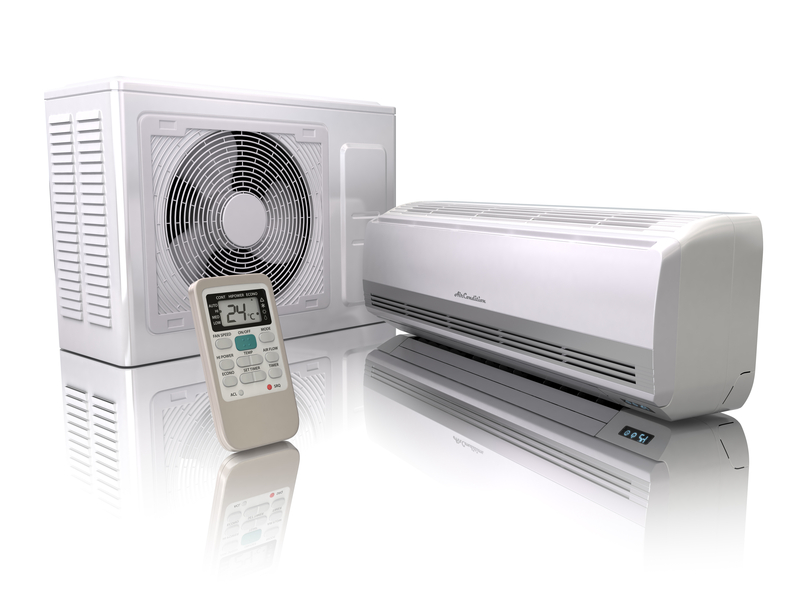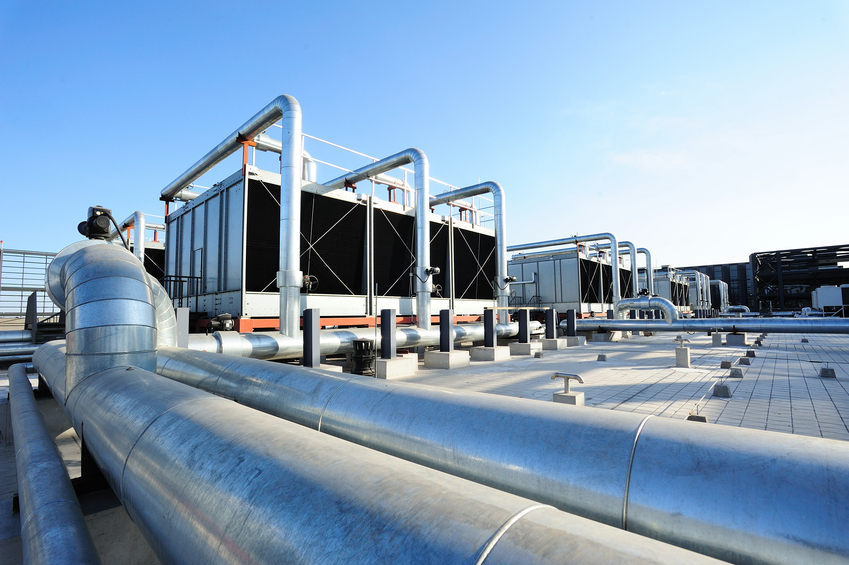British Columbia HVAC 19 PDH Discount Package 2
Heating and Cooling System Upgrades (M03-022)
Boiler Basics, Operation and Maintenance (M08-009)
Cooling Tower Key Components and How to Improve Water Efficiency (M01-018)
General Principals of Engineering Ethics for British Columbia Professional Engineers (BC1-001)

This online engineering PDH course provides a procedure for preparing a manual calculation for cooling load using CLTD/CLF method suggested by ASHRAE and includes two detailed examples. For more advanced methods such as TFM, the reader should refer to ASHRAE and other handbooks.
Heating and cooling load calculations are carried out to estimate the required capacity of heating and cooling systems, which can maintain the required conditions in the conditioned space. To estimate the required cooling or heating capacities, one has to have information regarding the design indoor and outdoor conditions, specifications of the building, specifications of the conditioned space, and any special requirements of the particular application.
Generally, heating and cooling load calculations involve a systematic and stepwise procedure, which account for all the building energy flows. In practice, a variety of methods ranging from simple rules-of-thumb to complex transfer function methods are used to arrive at the building loads.
This 6 PDH online course is applicable to mechanical engineers, design and construction personnel, technical staff and facility personnel who are interested in gaining a better understanding in cooling load calculations and principles.
This P.Eng. continuing education course is intended to provide you with the following specific knowledge and skills:
- Understand the basic terminology and definitions related to air conditioning load calculations
- Explain the differences between heating and cooling load design considerations
- Explain the difference between 1) space heat gain v/s cooling load 2) space cooling v/s cooling load and 3) external loads v/s internal loads
- Differentiate between sensible and latent loads
- List commonly used methods for estimating cooling loads
- Estimate the internal and external cooling loads using CLTD/CLF method from building specifications, design indoor and outdoor conditions, occupancy etc.
- Describe various equations and the information sources to determine conductive load through opaque building elements.
- Describe various equations and information sources to determine the solar transmission load through glazing.
- Describe various equations and information sources to determine the internal load due to people, lights and power appliances.
- Determine the supply air flow rate
- Learn by examples the detailed methodology to cooling load calculations
- Learn the functional parameters of software programs such as TRACE 700 and CHVAC
In this professional engineering CEU course, you need to review the course document titled "Cooling Load Calculations and Principles".
Upon successful completion of the quiz, print your Certificate of Completion instantly. (Note: if you are paying by check or money order, you will be able to print it after we receive your payment.) For your convenience, we will also email it to you. Please note that you can log in to your account at any time to access and print your Certificate of Completion.

This online engineering PDH course identifies the opportunities for improving the performance of the heating and cooling system based on the type of system that is in place.
Heating and cooling systems are the largest single consumers of energy in buildings. These systems condition the air within a building so that occupants are comfortable. Heating and cooling systems consist mainly of chillers, boilers, cooling towers, and pumps. There are central heating and cooling systems, and unitary systems that combine heating and cooling. Opportunities exist for improvement to both central and unitary systems.
This 3 PDH online course is applicable to engineers, contractors, designers and other technical professionals who are involved in the retrofit of existing heating and cooling systems.
This P.Eng. continuing education course is intended to provide you with the following specific knowledge and skills:
- Understanding the best opportunities available for upgrading central cooling systems including chillers, cooling towers, water side economizers and pumps
- Understanding the best opportunities available for upgrading central heating systems including boilers and furnaces
- Understanding the best opportunities available for unitary systems including packaged or rooftop units, split system packaged units, air source heat pumps and water loop heat pump systems
- Learning about new strategies aimed at saving energy such as geothermal heat pumps, district cooling and heating, radiant heating and cooling, cool storage, high temperature difference distribution, evaporative cooling, and non-electric cooling
In this professional engineering CEU course, you need to review "Heating and Cooling System Upgrades" of the Energy Star Building Manual. (Energy Star is a joint program of the U.S. Environmental Protection Agency and the U.S. Department of Energy).
Upon successful completion of the quiz, print your Certificate of Completion instantly. (Note: if you are paying by check or money order, you will be able to print it after we receive your payment.) For your convenience, we will also email it to you. Please note that you can log in to your account at any time to access and print your Certificate of Completion.

This online engineering PDH course provides information on steam generation, types of boilers pertinent to engineering operations, and the various fittings and components commonly found on boilers.
The boiler is an enclosed vessel in which water is heated and circulated, either as hot water or steam, to produce a source for either heat or power. A central heating plant may have one or more boilers that use gas, oil, or coal as fuel. The steam generated is used to heat buildings, provide hot water, and provide steam for cleaning, sterilizing, cooking, and laundering operations. Small package boilers also provide steam and hot water for small buildings.
A boiler must also meet certain requirements before it is considered satisfactory for operation. The boiler must be safe and economical to operate, and it must be able to generate steam at the desired rate and pressure.
This 8 PDH online course is applicable to mechanical engineers and professionals who are interested in learning more about the operation, maintenance, and repair of boilers used in various engineering applications.
This P.Eng. continuing education course is intended to provide you with the following specific knowledge and skills:
- Familiarizing with the steam generation theory
- Understanding boiler design requirements
- Learning about the different types of boilers, their fittings and accessories
- Identifying the automatic controls associated with boilers
- Learning about the different types of instruments and meters
- Knowing the procedures associated with boiler water treatment and cleaning
- Gaining an overview of the procedures associated with boiler maintenance
Upon successful completion of the quiz, print your Certificate of Completion instantly. (Note: if you are paying by check or money order, you will be able to print it after we receive your payment.) For your convenience, we will also email it to you. Please note that you can log in to your account at any time to access and print your Certificate of Completion.

This online engineering PDH course provides a basic understanding of cooling towers, describes their key components and provides recommendations on how to improve the water efficiency.
Cooling towers are an integral component of many refrigeration systems, providing comfort or process cooling across a broad range of applications. They are the point in the system where heat is dissipated to the atmosphere through the evaporative process, and are common in industries such as oil refining, chemical processing, power plants, steel mills, and many different manufacturing processes where process cooling is required.
This 1 PDH online course is intended for mechanical and environmental engineers as well as others interested in learning more about cooling towers and how to improve their water efficiency.
This P.Eng. continuing education course is intended to provide you with the following specific knowledge and skills:
- Understanding the basic cooling tower terms
- Learning the different types of cooling towers
- Learning the system calculations
- Understanding the factors that limit cycles of concentration
- Knowing the system concerns
- Familiarizing with the treatment options
Upon successful completion of the quiz, print your Certificate of Completion instantly. (Note: if you are paying by check or money order, you will be able to print it after we receive your payment.) For your convenience, we will also email it to you. Please note that you can log in to your account at any time to access and print your Certificate of Completion.

This online engineering PDH ethics course is (1) the study of moral issues and decisions confronting individuals and organizations involved in engineering and (2) the study of related questions about moral conduct, character, ideals and relationships of peoples and organizations involved in technological development (Martin and Schinzinger, Ethics in Engineering).
This course will address the principles of engineering ethics that every engineer is expected to live by when practicing their profession. It will also present unique ethical case studies randomly selected to demonstrate ethical challenges for professional engineers and alternatives to address these challenges.
This 1 PDH online course is applicable to Professional Engineers licensed in the Province of British Columbia and who are required to demonstrate continuing professional competency in engineering ethics as a condition of their license renewal. For each renewal period, every licensee must complete at least one (1) professional development hour relative to the principals of professional responsibility, conduct and ethics.
This P.Eng. continuing education course is intended to provide you with the following specific knowledge and skills:
- Understanding the definition of engineering ethics
- Learning how to hold the utmost safety, health, and welfare of the public when practicing your profession
- Familiarizing with the conditions to issue public statements
- Gaining a general overview on how to represent each employer or client as a faithful trustee
- Learning how to build your professional reputation on the merit of your services
- Understanding professional ethical practices through presenting realistic case studies
- Learning how to handle proprietary information and intellectual property rights
Upon successful completion of the quiz, print your Certificate of Completion instantly. (Note: if you are paying by check or money order, you will be able to print it after we receive your payment.) For your convenience, we will also email it to you. Please note that you can log in to your account at any time to access and print your Certificate of Completion.